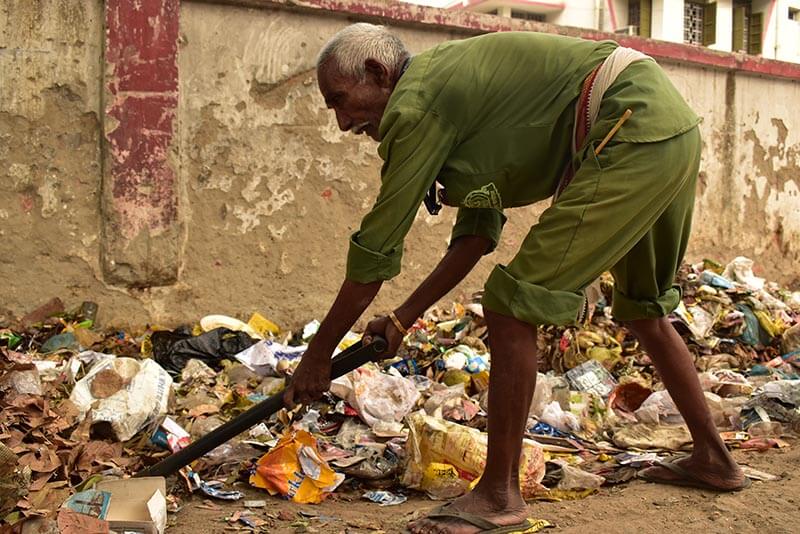Around the white sands of Copacabana and Ipanema beaches in Rio de Janeiro as the sun beats down and surfers mill on the water’s edge, you will find no scrap left out on the streets and walkways, because recycling aluminum cans has become a way of life here.
Those who quickly collect any trash that is dropped or placed in the garbage bin see it as a lifeline and might ask someone disposing of it: “Would you throw away money?”
This is how people in many parts of Brazil see garbage – as an income stream and a way of earning money to feed their family. It’s a totally different attitude to how most people in the western world, including Canada, view types of scrap metal.
But then again, recycling aluminum cans in these countries isn’t changing lives, helping the poorest people out of poverty and at the same time, achieving a near 100% recycling rate.
In the world, about two billion of us live in communities with no garbage collections – that’s about one in four – but in countries such as Brazil, people collect it themselves, with the latest census in 2010 showing nearly 400,000 people were employed as waste pickers, paid by weight for the materials they collected.
Near 100% recycling rate
This has helped Brazil become the world champion for recycling aluminum cans, collecting and processing 96% of cans sold in 2005, rising to a high of 98.4% in 2014 and staying at an impressive 97.3% the last time data was collected in 2017, according to the Brazilian Aluminum Association.
To put this impressive performance into perspective, that’s 289,500 million tons of the 294,200 million tons of aluminum cans sold by companies such as Pepsi and Coca-Cola collected and recycled – in total, 62.7 million cans processed a day and 2.6 million an hour.
And this effort is not just to save the environment – scrap yard’s paying for collected metal create opportunities that are “taking people off the streets” in Brazilian cities such as Belo Horizonte, according to an Informal Economic Monitoring Study.
It looked at 763 people employed in the industry in five cities in Africa, Asia and Latin America, finding for 65%, collecting trash was their primary income.
Some estimates there are 1.5 million to 4 million waste pickers in India, collecting aluminum cans and plastic bottles as well as other types of garbage.
But there are many ways to change lives with trash.
Changing lives through waste management
This was the philosophy of the European Union, when spending millions of dollars in one of its poorest states, saying: “Improved waste management leads to a better quality of life.”
In Romania’s Maramures County, it invested in a complete system of recycling – but the aim was not just to increase recycling rates of different types of garbage.
It also wanted to improve the lives of the 500,000 residents in many other ways – firstly, by reducing what they sent to landfill and what they dumped in the countryside, reducing health risks from this, improving hygiene and the quality of the environment.
And if it could achieve these things, it hoped the area would be more attractive to potential investors – who would then set up business there, bringing jobs and opportunities with them.
Maybe the secret to turning trash into cash and changing your life through it is just a case of waking up to the possibilities – just ask former hockey player Patrick Dovigi, who founded Green for Life and is now worth an estimated $1.08 million.
But perhaps the most inspiring case is that of a 13-year-old girl who escaped the civil war in El Salvador with her family and arrived in the US without knowing a word of English.
“When I see waste, I see opportunity. That’s my slogan,” are the words of Maria Rios, which show that maybe the vast majority of people look at garbage in totally the wrong light.
She started off by taking out a bank business loan to buy two garbage trucks – now the Houston-based entrepreneur is CEO of US firm Nation Waste, which turns over US$ 30 million a year.
Not-for-profit recycling
But aluminum cans, end-of-life cars and scrap yard prices aren’t all about earning a living or making your fortune – recycling can also change lives while making no profit for the business behind it at all.
In the UK, a “unique” organization is combining business and charity, with Recycling Lives using all the money it makes from commercial operations to help others.
Through revenues made by its scrap metal and scrap car enterprise, it funds a residential accommodation for homeless people, a food distribution centre for poor people and an offender rehabilitation program so they don’t end up back in jail.
It’s an old saying – one man’s trash is another man’s treasure, but maybe it should be changed to everybody’s trash could become somebody’s treasure.
That way we won’t ever throw money away again while saving the environment, and who knows, maybe create a few business and job opportunities from items that would otherwise be destined for your garbage bin.

